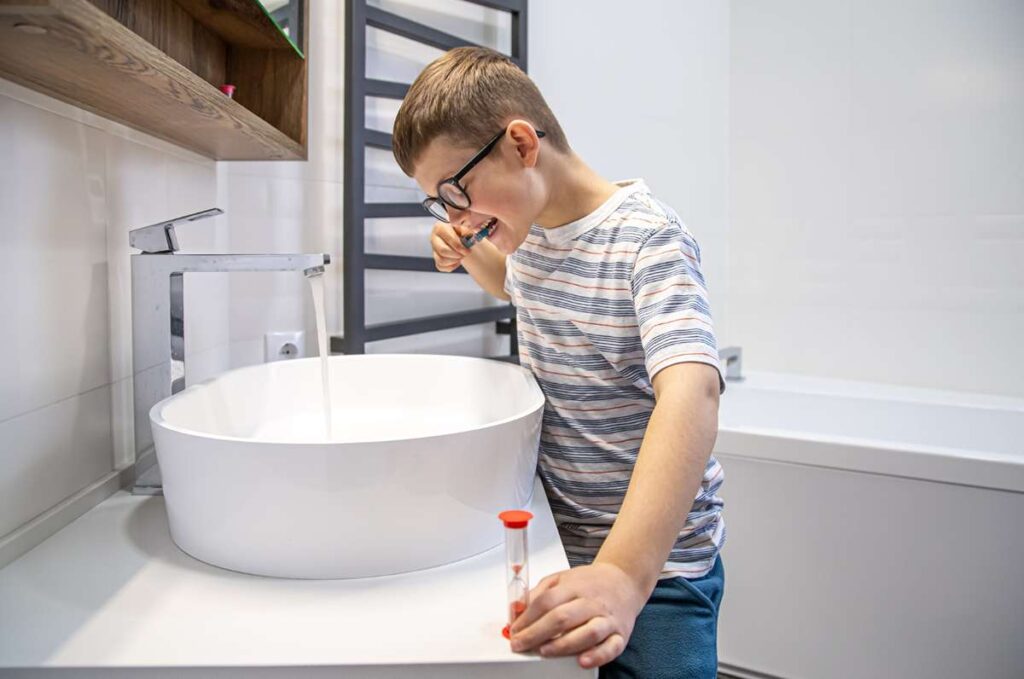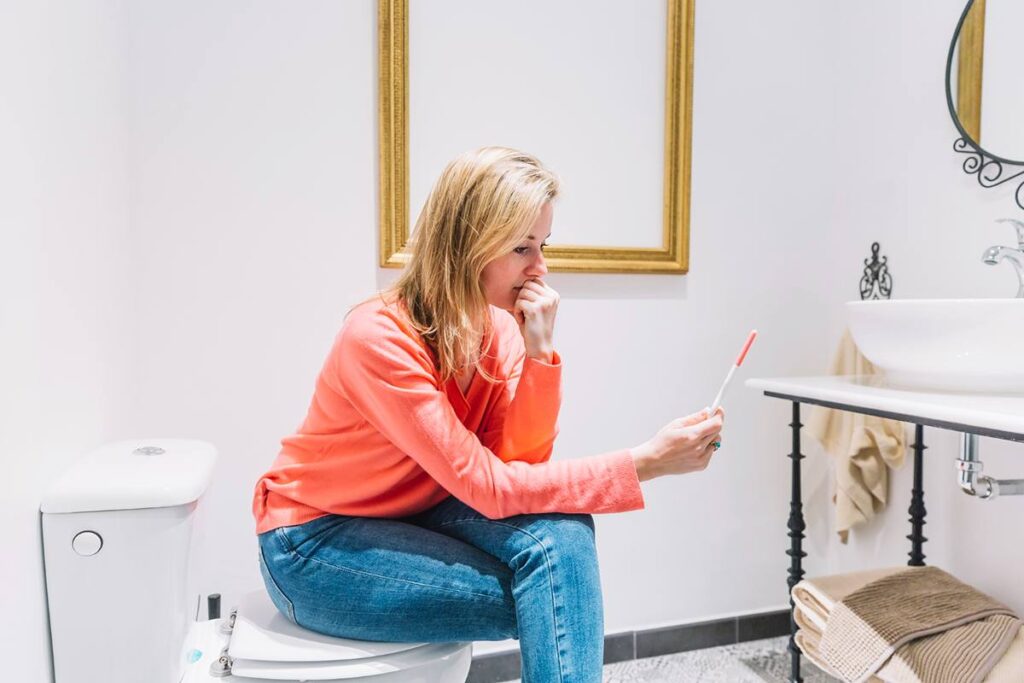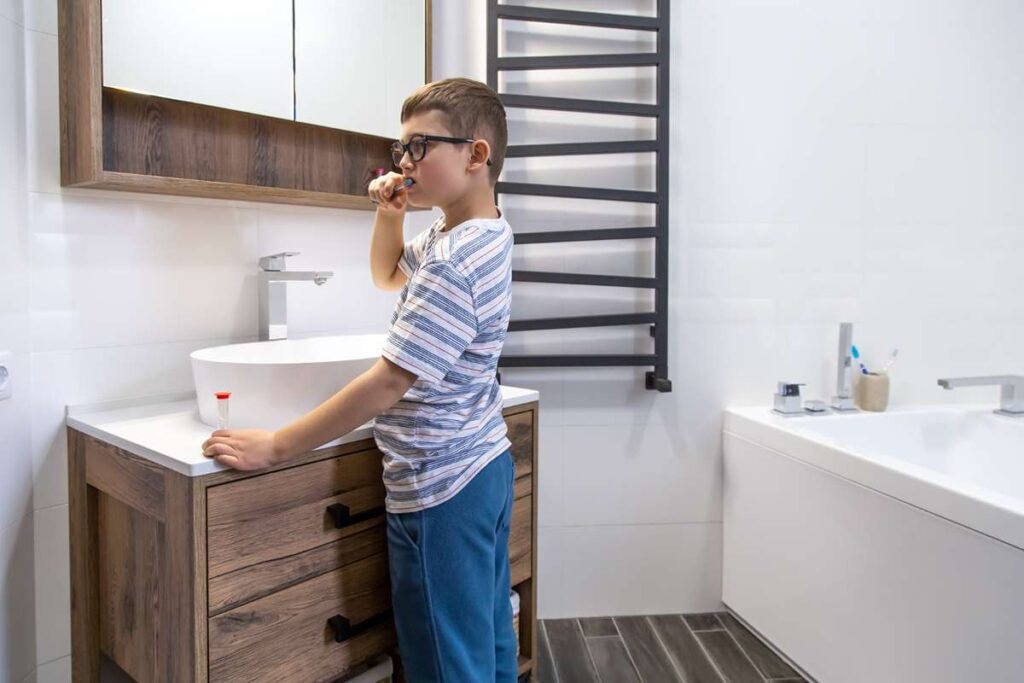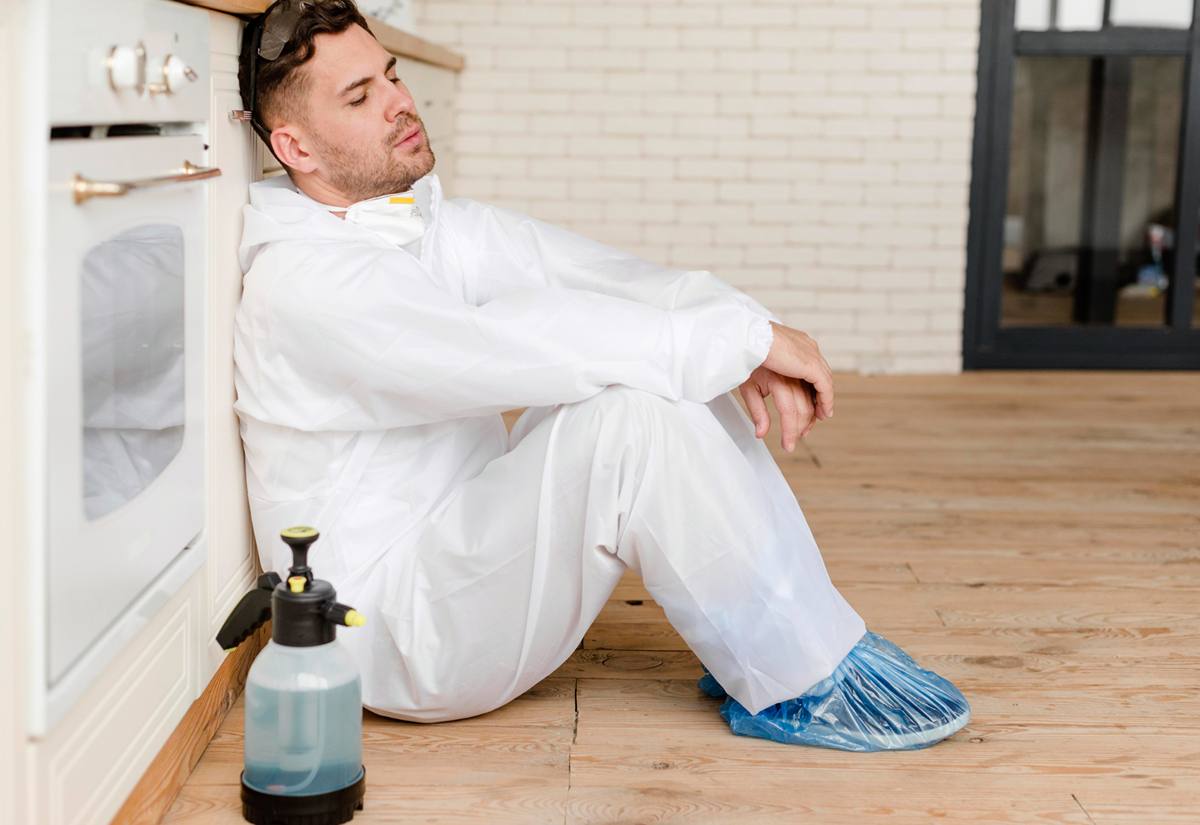Have you ever walked into your bathroom and been hit with a foul, rotten smell, almost like something’s not quite right? You might be asking yourself, Is sewage smell in bathroom dangerous? Well, you’re not alone. Many people experience this unpleasant odor, and it’s natural to worry about the health risks. The truth is, while the smell can be unpleasant, it’s important to know what’s causing it and whether it poses a danger. In this article, we’ll explain the common causes of sewage smell, its potential health risks, and simple ways to get rid of it—so you can enjoy a fresh, clean bathroom again!
What Causes Sewage Smell in Bathrooms?
If you’ve ever stepped into your bathroom only to be greeted by a strong, unpleasant smell like sewage, you might be wondering, Why does my bathroom smell like sewage? The good news is that this smell usually has a simple cause, and in most cases, it’s not a sign of something too serious. Here’s a breakdown of the most common reasons you might be dealing with sewer smell in bathrooms.
Common Causes of Sewer Smell
Dry P-trap
The P-trap is a curved pipe under your sink or toilet that holds a small amount of water to prevent sewer gases from entering your bathroom. If the trap dries out (due to a bathroom not being used for a while), it allows those gases to escape and cause the bad smell. This is a common cause of sewer-like odors in bathrooms, especially if the bathroom isn’t used frequently.
Broken Seals Around the Toilet
The seal around your toilet is there to prevent water leaks and keep odors from escaping. Over time, this seal can wear out or become loose, allowing sewer gases to seep into your bathroom. If you notice the smell getting stronger when using the toilet, this could be the problem.
Blocked or Broken Pipes
Pipes that are clogged or cracked can lead to backups, which cause unpleasant smells to escape. A blockage can trap waste and water, causing bad odors to linger in your bathroom.
Vent Pipe Problems
Every bathroom has a vent pipe that allows air to flow through the plumbing system. If this pipe is blocked or damaged, it can cause air pressure changes that push sewer gases back into your bathroom, creating a nasty smell. This is especially common if you hear gurgling sounds when you flush the toilet or run the sink.
Sewer Smell in Bathrooms Explained for Kids

Imagine plumbing as a bunch of straws connected to each other. When you drink a soda with a straw, the liquid moves up and down, just like water moves through pipes. Now, think of the P-trap under the sink as a small, invisible barrier that keeps bad smells from coming up. If the straw is blocked or the barrier is gone, the bad smells can sneak back into the room. So, when the water in the “straw” evaporates or the “barrier” breaks, the sewage smell is allowed to escape and fill your bathroom.
Also, check out our article on click here
Is Sewage Smell in Bathroom Dangerous?
If you’ve noticed a persistent sewage smell in your bathroom, you might be wondering, Is sewage smell in bathroom dangerous? While the odor itself is unpleasant, it’s important to understand the health risks associated with it. In most cases, the smell is caused by harmless issues like dry P-traps or broken seals, but in some situations, the gases can pose risks to your health. Let’s take a closer look at the potential dangers of sewer gas exposure.
Can Breathing Sewer Gas Make You Sick?
Yes, breathing in sewer gases can make you feel unwell. These gases often include hydrogen sulfide and methane, which can cause a range of symptoms. Here are some common signs of exposure:
- Headaches
A common reaction to sewer gases is a dull headache that won’t go away, often worsened by being in the bathroom for an extended time. - Nausea
The foul odor from sewage can cause nausea and upset your stomach, making you feel like you need to leave the area immediately. - Dizziness
Exposure to sewer gases can lead to dizziness and light-headedness, especially if you are sensitive to smells. - Breathing Problems
Inhaling sewer gases may cause difficulty breathing, wheezing, or shortness of breath, especially in those with asthma or respiratory conditions.
Long-Term Health Risks (Rare but Possible)
Although it’s uncommon, long-term exposure to sewer gases can lead to more serious health issues. These include:
Hydrogen Sulfide Exposure
Hydrogen sulfide, one of the gases found in sewage, can be toxic in large amounts. Prolonged exposure can cause irritation of the eyes, nose, and throat, and in extreme cases, can even affect the nervous system.
Methane Gas Dangers
Methane is another gas that can be present in sewage smells. While it’s not toxic, it can displace oxygen in the air, leading to suffocation if not properly ventilated.
Also, check out our article on click here
How to Remove Sewer Smell from Bathroom (Simple Fixes)

If you’re dealing with that unpleasant sewer smell in your bathroom, you’re probably asking, How to remove sewer smell from bathroom? Luckily, there are simple and effective ways to fix the issue without calling in a plumber. Here are some quick fixes that can help eliminate the odor and make your bathroom smell fresh again.
Easy DIY Tricks
Here are a few simple steps you can take to remove the sewer smell from your bathroom:
Pour Water in Drains (For Dry P-Traps)
If the smell is coming from the sink or shower, it might be due to a dry P-trap. Simply pour a few cups of water down the drain to refill the trap and prevent sewer gases from escaping.
Check Toilet Seal
A broken or loose toilet seal can allow sewer gases to escape. Check if the seal around the toilet is intact, and if not, it may need to be replaced to prevent the smell.
Use Drain Cleaning Solutions
Clogs or blockages in the drain can cause unpleasant odors. Using a store-bought drain cleaner or a natural solution can help clear the pipes and get rid of the smell.
Open Bathroom Windows for Ventilation
Good ventilation is key! Open your bathroom windows to let fresh air in and help eliminate any lingering smells. If you have an exhaust fan, make sure it’s working properly.
Also, check out our article on click here
How to Remove Sewer Smell from Bathroom with Baking Soda
For a natural remedy, baking soda can work wonders in removing sewer smells from your bathroom. Here’s how to do it:
- Mix Baking Soda + Vinegar
Combine 1/2 cup of baking soda with 1 cup of vinegar. This creates a fizzy reaction that helps break down blockages and neutralizes odors. - Pour Down the Drain
Pour the baking soda and vinegar mixture down the smelly drain. Let it sit for 10–15 minutes to allow the solution to work its magic. - Rinse with Hot Water
After the mixture has had time to work, rinse the drain with hot water to flush out any remaining debris and leave your bathroom smelling fresh.
Also, check out our article on click here
Is Sewer Gas from Toilet Dangerous?
If you’re noticing a sewer smell in your bathroom, the toilet could be the main culprit. Many homeowners ask, Is sewer gas from toilet dangerous? While a smell from the toilet might seem harmless, it can sometimes indicate a bigger issue with your plumbing system. Let’s take a closer look at why the toilet can be the source of sewer gas and what you can do to fix it.
The primary reason your toilet may be leaking sewer gas is a faulty wax ring or a problem with the P-trap. The wax ring seals the base of the toilet, preventing sewer gases from escaping into your bathroom. If this ring becomes damaged or worn out, it allows those gases to seep through. Similarly, if the P-trap under the toilet dries out or is broken, it can’t block the flow of sewer gases, causing the unpleasant odor to escape.
When to Call a Plumber
While there are some easy fixes you can try at home, there are situations where it’s best to call a professional plumber. Here are a few signs that indicate it’s time to get expert help:
- If the Smell Keeps Coming Back
If you’ve tried fixing the issue with DIY methods but the smell returns, it could mean there’s a deeper issue with the plumbing system that needs professional attention. - If Pipes Are Old or Damaged
Old or corroded pipes can lead to leaks and cracks that allow sewer gases to escape. A plumber can inspect and repair any damaged pipes to keep your bathroom smelling fresh. - If Health Symptoms Appear
If you or your family members start experiencing health symptoms like headaches, nausea, dizziness, or breathing issues, it’s a sign that sewer gas exposure is becoming a serious problem. In this case, calling a plumber immediately is essential to prevent any further risks.
Also, check out our article on click here
Why Sewage Smell Happens at Night or After Rain
If you’ve noticed that your bathroom smells like sewage at night or after it rains, you’re not alone. Many people wonder, Why does sewage smell happen at night or after rain? These odors are often caused by specific environmental factors that affect how your plumbing system works. Let’s explore why you might notice this issue during these times.
Night Smell Causes
There are a couple of reasons why your bathroom might smell like sewage specifically at night:
- Lack of Ventilation
At night, people usually close the bathroom windows and doors, which can lead to poor ventilation. Without fresh air circulating, any trapped odors, including sewage smells, linger and become more noticeable. Without airflow, sewer gases can’t escape, causing the smell to fill the room. - Infrequent Bathroom Use
At night, bathrooms aren’t used as often, which can lead to plumbing traps, like the P-trap, drying out. When these traps dry, they lose their ability to block sewer gases from escaping, resulting in the foul smell being released into the bathroom.
Rainy Day Smells
Heavy rainfall can cause sudden changes in your plumbing and sewer system, leading to bad odors. Here’s why this happens:
- Water Pressure Changes
Rain can increase water pressure in the sewer system, which can push water and waste back into your home’s plumbing. This backflow can cause sewer gas to escape into the bathroom, creating that sewage smell. - Sewer System Backflow
Rainwater can overwhelm the local sewer system, especially if the system is old or poorly maintained. During a heavy downpour, this can cause sewer water to back up into your pipes, pushing gas into your bathroom and causing the foul smell.
Also, check out our article on click here
Upstairs Bathroom Smells Like Sewage – What to Do

If you’ve noticed that your upstairs bathroom smells like sewage, you’re likely dealing with an issue that affects the plumbing system. Many people ask, Why does my upstairs bathroom smell like sewage? In most cases, the smell is related to venting issues or shared plumbing lines between floors. Let’s break down what could be causing the problem and how to address it.
Venting Issues in the Upstairs Bathroom
One common cause of sewage smells in an upstairs bathroom is a problem with the venting system. Plumbing vents help air flow through your pipes, preventing the buildup of pressure and allowing waste to move smoothly through the system. If the vent becomes clogged or is blocked by debris, it can cause water to drain slowly and create a vacuum, leading to sewer gases backing up into the bathroom.
In this case, the smell you’re experiencing might not only be from a blocked vent but also because the plumbing system is struggling to function properly. The lack of proper ventilation can trap sewer gas, allowing it to escape into your bathroom, especially in higher areas like the second floor.
Shared Plumbing Lines Between Floors
Another reason your upstairs bathroom may smell like sewage is shared plumbing lines between floors. In many homes, the plumbing for bathrooms on the upper floors is connected to the same drainage system as the lower floors. If there’s a clog or backup in the pipes below, it can cause the sewer gases to rise and affect the bathroom upstairs. This can be particularly problematic if there’s an issue with the main drain line or a backup in the basement or ground level.
Also, check out our article on click here
FAQs: Sewage Smell in Bathroom
1. Can sewer smell from bathroom make you sick?
Yes, sewer smells can contain harmful gases like hydrogen sulfide, which can cause headaches, nausea, and dizziness. Long-term exposure may lead to more serious health issues.
2. Is it dangerous to smell drains in the bathroom?
Breathing in sewer gas from drains can be harmful. The gases, including methane and hydrogen sulfide, can cause short-term health problems like headaches or dizziness.
3. Is it safe to breathe in sewage smell?
Breathing in sewage smell is not safe. The gases released, such as methane, are toxic and can lead to respiratory issues, nausea, and dizziness.
4. Is sewage smell an emergency?
If the smell is strong or persistent, it could indicate a serious plumbing issue, like a blocked vent or sewage backup. It’s important to address the problem to avoid potential health risks.
5. Is it safe to stay in a house that smells like sewer?
Prolonged exposure to sewer gas can be harmful. It’s essential to resolve the issue to avoid health risks associated with toxic gases like hydrogen sulfide and methane.
6. How long does sewer gas make you sick?
The effects of sewer gas can be immediate or develop over time with prolonged exposure. Symptoms like headaches and nausea may subside once the air clears, but long-term exposure can cause more severe health issues.
7. Is sewage harmful to humans?
Yes, sewage can be harmful to humans. It contains bacteria and toxic gases that can lead to health issues like respiratory problems, infections, and digestive disturbances.
8. How do you treat sewage smell?
To treat sewage smell, fix any plumbing issues like blocked drains or dry P-traps, use cleaning solutions, and improve ventilation in the bathroom. Baking soda and vinegar can also help eliminate odors.
9. Is Sewage Smell in Bathroom Dangerous?
Yes, sewage smell in the bathroom can be dangerous. It often contains toxic gases like hydrogen sulfide and methane, which can cause immediate and long-term health issues if not addressed.
Also, check out our article on click here
Conclusion
In conclusion, the sewage smell in your bathroom is not something to ignore. It can be a sign of underlying plumbing issues like dry P-traps, broken seals, or blocked pipes, which can lead to the release of harmful gases such as hydrogen sulfide and methane. These gases can cause short-term symptoms like headaches and dizziness, and long-term exposure may result in more severe health problems.
However, the good news is that sewage smells can be prevented and fixed with simple steps. Regularly using drains, cleaning them weekly, ensuring proper ventilation, and checking toilet seals are key practices to avoid these unpleasant odors. If the problem persists, don’t hesitate to call a professional plumber for help.










